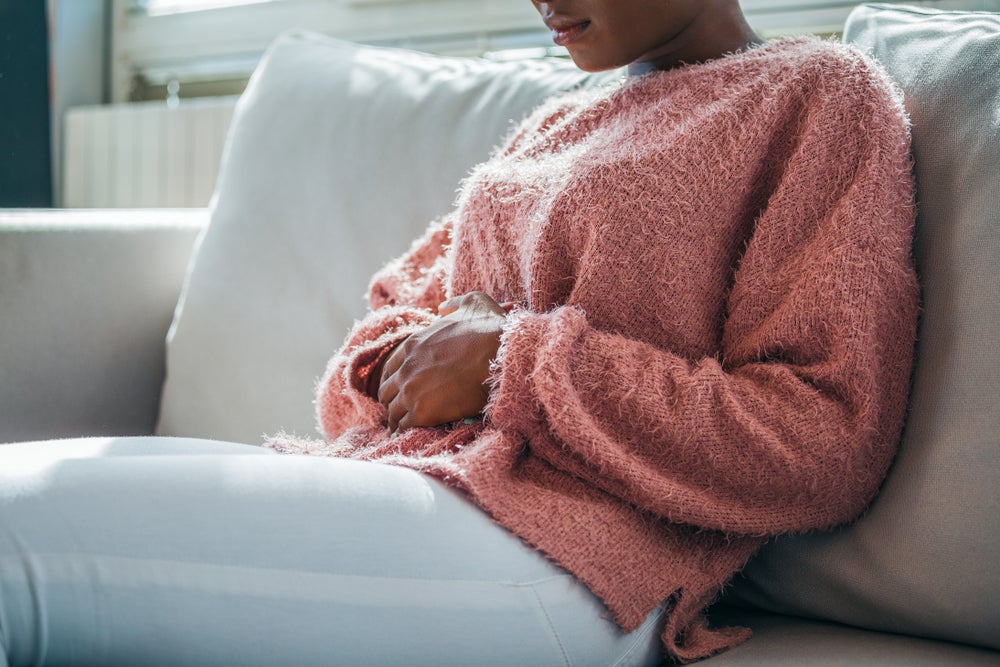10 Reasons for Cramping after Hysterectomy
It’s been a few months since your hysterectomy, and once again you are having cramps. It doesn’t make sense. How can you have uterine cramps if you don’t have a uterus?
It’s simple really. You’re probably feeling your intestines. What’s more, some of what you thought were uterine cramps before your hysterectomy were probably your intestines, too.
There are a few other reasons for cramps after a hysterectomy, too. Knowing the causes can help you both prevent and treat them.
1. Digestion Troubles
Of course, you know indigestion can cause cramps. But you might not realize that as you age, your body changes. Some foods may not settle as well as they used to in your younger days. Think back over your diet and consider if you’ve eaten something you shouldn’t have. Did you try something new or have you overeaten? It might be your intestines don’t care for your diet, especially considering the upset of surgery, anesthesia, medications, and hormone changes.
2. Stress
Stress is notorious for causing cramps. Whether its chronic stress, an impending deadline, or hearing some bad news, stress can set off physical responses that leave your guts tied up knots.
3. Dehydration
If you become dehydrated, you can experience some cramping. Your intestines need water to be able to digest your meals and work properly. It’s especially important to drink plenty of water each day if your diet is high in fiber, you are taking medications, or you’re exercising more.
4. Irritable Bowel Syndrome (IBS)
If you’ve gone through a lot of changes in your life or are dealing with a lot of stress, you may have developed IBS. One of its signs is cramps, often accompanied by either diarrhea or constipation.
5. Prostaglandins – Menstruation
Prostaglandins are produced as part of menstruation. These hormone-like substances are what caused uterine cramps during your period. But they can cause bowel cramps, too. Remember how you had some diarrhea or constipation as part of PMS? Prostaglandins could have been the culprit then and now. Adding insult to injury, varying levels of hormones during your cycle can also make your intestines cranky, leaving you with cramps and tenderness.
6. Prostaglandins – Trauma
Prostaglandins can also be produced by tissues that have suffered trauma or injury, such as the areas around where your uterus had been. So until you’re completely healed, the prostaglandins in your abdominal and pelvic region can play havoc on the nearby intestines. If you do too much too soon, you could create even more trauma and thus more cramping, so it’s a good idea to follow your doctor’s order and give your body the time it needs to heal right the first time.
7. Prostaglandins – Endometriosis
If you have endometriosis, you may have higher levels of prostaglandins. Endometriosis can increase inflammation, cause trauma to surrounding tissue, and produce prostaglandins. If there’s endometriosis on your intestines, there can be double trouble. Any endometriosis your surgeon left behind during your hysterectomy can continue to produce some prostaglandins, so the cycle of pain and symptoms may continue. You can end up with not only chronic pelvic pain, but intestinal cramping, too.
8. Ovulation
Your ovaries can be another culprit for camping sensations, when an egg matures and releases during ovulation. If there is scar tissue in the area following your hysterectomy, it could cause more sensations than you had in the past.
9. Ovarian Cysts
Speaking of ovaries, your cramping could be from an ovarian cyst. It’s important to see your doctor if you suspect this might be the problem since you could develop complications such as ovarian torsion or a burst cyst. Seek emergency medical care if your cramping turns into sharp or extensive pain or if you develop additional symptoms. If you don’t have your ovaries, it could be a sign you’ve developed ovarian remnant syndrome {ORS} that has produced a cyst.
10. Ovarian Cancer
Cramping can be a sign of ovarian cancer. You shouldn’t panic, but you need to be aware of this concern – especially if you have personal or family risk factors. If there’s any chance you think it could be cancer, seek medical care sooner rather than later.
Treatment Options
You have several options for treating cramps, depending on their cause. Eating well is a good first step. Try to avoid foods that are known to make the bowels unhappy – like gas producing foods, those high in fat and salt, and dairy products. Instead, choose fruits, whole grains, vegetables, fish, and lots and lots of water.
You should also learn to manage stress and get regular exercise. Believe it or not, walking can get your bowels moving and help them function better.
Ibuprofen which helps with inflammation can also limit prostaglandin activity. It’s a possible over-the-counter option that might ease your cramps. If cramping is extreme, there are some prescription options, too, including antispasmodic drugs.
Calling the Doctor
There are also several medical conditions that can cause cramps. You might be having issues with your gallbladder or appendix. PCOS could be a culprit, too. If your cramping persists and does not respond to basic treatment, be sure to talk to your doctor. Several health conditions may cause cramping, so you don’t want to ignore what might be a more serious health concern.
This content was written by staff of HysterSisters.com by non-medical professionals based on discussions, resources and input from other patients for the purpose of patient-to-patient support. Reprinted with permission: 10 Reasons for Cramping after Hysterectomy
Photoroyalty/Shutterstock.com







